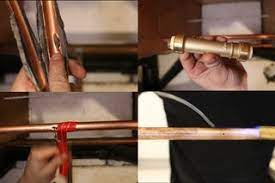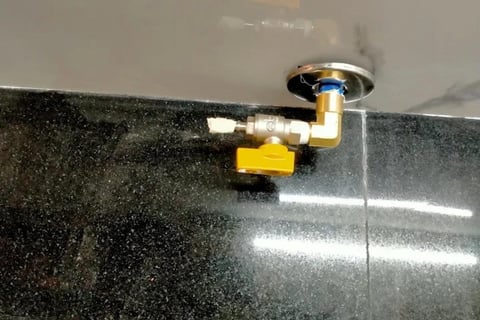How to Prevent Domestic Gas Pipeline Leaks
Regular inspections, high-quality installation, and educating your household about gas safety all play a significant role in preventing gas pipeline leaks.
11/14/20242 min read


Ensuring your home’s gas pipeline installation is safe and reliable is essential for every homeowner. Gas leaks can be hazardous, but with the right steps and preventive measures, you can significantly reduce the risk of leaks. In this blog, we’ll cover the best practices for preventing gas pipeline leaks and maintaining a secure home.
Why Proper Gas Pipeline Installation Matters
High-quality and professional gas pipeline installation is the foundation of a safe gas system in any home. When the installation is done correctly by certified professionals, it helps prevent many of the common causes of gas leaks, such as improper connections or low-quality materials.
Top Tips to Prevent Gas Pipeline Leaks
Choose Durable Materials for Gas Pipeline Installation
The materials used during gas pipeline installation impact the longevity and safety of the system. Copper and stainless steel are popular choices due to their durability and resistance to corrosion, which helps prevent leaks over time.
Ensure Proper Professional Installation
Hiring a certified professional for gas pipeline installation ensures that all connections and fittings are secure, reducing the likelihood of leaks. Professionals adhere to safety standards, which is vital for keeping your gas system secure.
Schedule Regular Inspections
Even with quality installation, gas pipelines need periodic inspections to catch wear, corrosion, or loose fittings early on. Regular maintenance is a proactive way to prevent leaks from developing.
Install Gas Leak Detectors
Gas leak detectors are essential in homes with gas pipelines, as they provide an early warning if there is any presence of gas in the air. Place detectors near areas like the kitchen and boiler room to monitor any signs of leaks.
Use a Reliable Shut-Off Valve
During the gas pipeline installation process, ask about shut-off valves that can cut off the gas flow if there is an unexpected spike in pressure. This automatic feature can prevent significant damage in case of a leak.
Regularly Check Fittings and Connections
Over time, fittings may loosen due to temperature changes or minor shifts in the pipeline. Regularly checking these connections and having a professional tighten them as necessary can prevent leaks from occurring.
Be Mindful When Renovating
Home remodeling projects near gas lines can compromise the integrity of your pipeline. Before any work begins, consult your gas provider to ensure that drilling or construction won’t affect your pipeline installation.
Educate Your Household on Gas Safety
It’s crucial to educate family members on what a gas leak smells like and what steps to take if one is detected. Ensuring that everyone knows how to shut off the gas supply in an emergency is essential for a safe household.
Maintain Ventilation Near Pipelines
Good ventilation around gas pipeline installations can help prevent gas from accumulating in case of a minor leak. Keep areas around pipelines free from clutter and flammable materials for added safety.
Stay Updated on Safety Standards
Gas pipeline installation regulations may change over time, incorporating new safety measures. Staying updated on the latest guidelines ensures your gas system remains as safe as possible.
Conclusion
Preventing gas leaks is about making informed choices from the very beginning of the gas pipeline installation process and committing to regular maintenance. By following these best practices, you’ll not only protect your home and loved ones but also improve the efficiency and lifespan of your gas system.


Contact US Today:
Email: info@vaultgaspipeline.site
Phone:
+91 8522 09 2525
+91 95155 92020


Quick Links:
Services
Our Process
Why Choose us
Contact us
Our Services:
Gas Pipeline Installation
Gas Pipeline Maintenance
